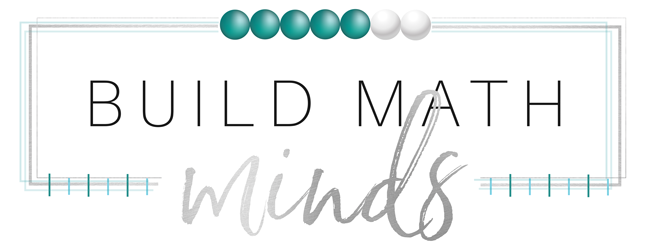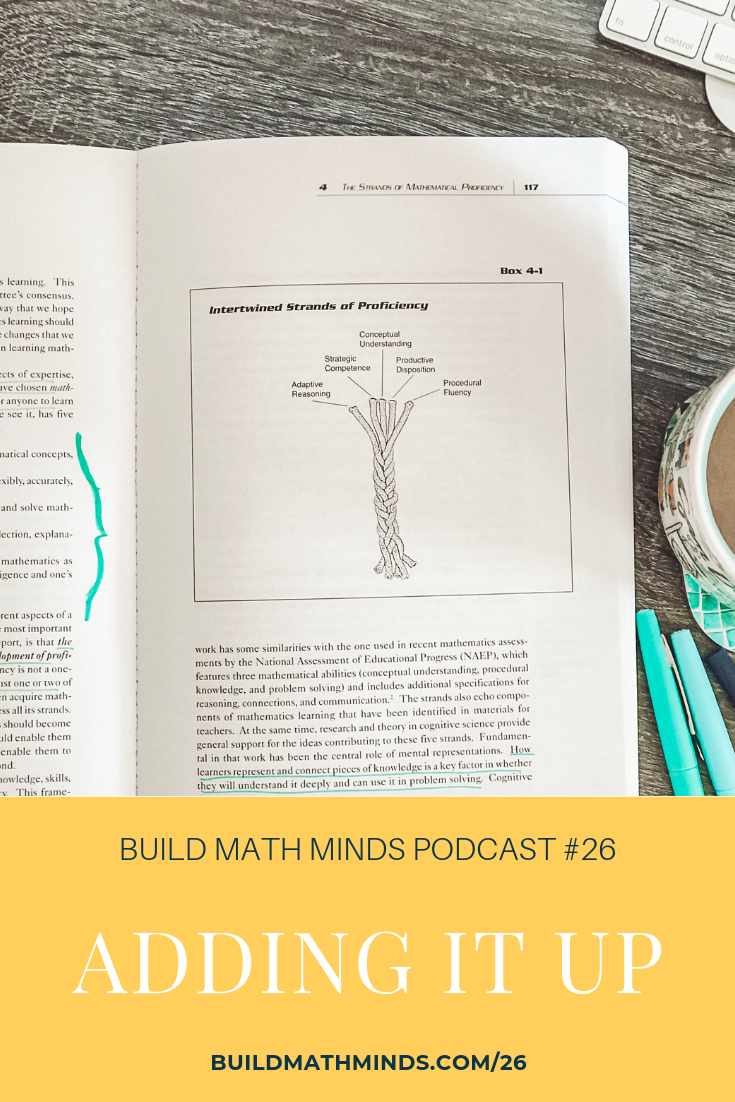Resources mentioned in this episode:
Adding it Up book
My Vlog post – Developing Mathematical Proficiency: Why You Shouldn’t Teach Math Through A Textbook
Welcome fellow Recovering Traditionalists to Episode 26. Today we are looking at Adding It Up.
It’s the start of the school year here in the U.S and for many educators that means a new math textbook. As I was reading back through the book Adding It Up: Helping Children Learn Mathematics for my recent vlog post I was reminded why I really don’t like textbooks.
I believe they give everyone, the principal, the teacher, the parents, and so on a false sense of comfort. We have seen textbooks as the giver of mathematical knowledge. That if a teacher “gets through the textbook” then we feel comfort that the children learned.
Or maybe your comfort comes from thinking that all the teachers are teaching from the same textbook, so all the students are “getting the same education.” But the reality is that the textbook really doesn’t define the math education a child gets.
Pages 356-357 of Adding It Up says:
“Research on teaching mathematics offers useful direction for developing instructional practices that lead to mathematical proficiency. The studies we have cited, as well as others too numerous to include, offer a set of recurrent findings worthy of attention. Although these findings are presented in broad strokes, they matter for the finer-grained questions of concern to practitioners and policy makers, parents, and the public. Unless these findings are understood, efforts to improve instructional quality and consequent learning are likely to founder.
First, no instructional practice, commodity, or material exists independently of context and participants as a durable and reliable resource for developing mathematical proficiency. How teachers and students interpret, value, and use such matters as time, curriculum, books, tasks, and calculators shapes whether and how these affect instruction.
Second, effectiveness depends on enactment. The effectiveness of a curriculum, for example, depends not only on its mathematical integrity and organizational design, but also on how usefully it guides instruction. Although analyses of the content of instructional materials are crucial, so too are analyses of how those materials actually play out in lessons day by day across units of instruction: what is taught, in what ways, and what students learn. The same can be said of tools and techniques such as manipulatives, calculators, small-group work, and homework.
Third, teachers and students’ interactions about mathematics iteratively shape the effectiveness of their instructional work. Teachers’ expectations of students can shape the nature of the tasks the teachers pose, what they ask, how long they wait, how and how much encouragement they provide— elements that together compose students’ opportunities to learn as well as their motivation and confidence to learn. The students’ responses, in turn, affect teachers’ estimates of their capacity and progress, shaping their next moves with students.”
There are so many factors that play into how different teachers make use of the exact same textbook that my belief is that more time and money needs to go into the professional development of teachers. There is so much time and money put into a new textbook thinking that it will help improve students’ math scores, but without building teachers’ understandings of the things mentioned in the book Adding It Up, teachers will go right back to teaching in their way even with a new textbook.
Adding It Up is one of those books that every educator should read. I encourage you to go get the book because there is so much goodness inside this book than just the small part that I read.
This episode is brought to you by the Build Math Minds Professional Development site. It’s an online site full of PD videos designed specifically for elementary teachers to help you build your math mind so you can build the math minds of your students. If you are interested in getting in depth math PD at your fingertips become a member of Build Math Minds. Just go to buildmathminds.com/bmm. Depending upon when you’re listening to this, enrollment might be open or you can join the wait list and get notified when it opens again.
Subscribe and Review in iTunes
Hey, are you subscribed to the Build Math Minds Podcast, yet? If you’re not, make sure to do that today because I don’t want you to miss any episodes! Click here to subscribe to the podcast in iTunes.
While you’re there, don’t forget to leave a review on iTunes too. I would love to know your thoughts and how we can make sure that we give you content that you will really enjoy.
To leave a review, head over to iTunes and click on “Ratings and Reviews” and “Write a Review.” I can’t wait to hear your thoughts about the podcast.




